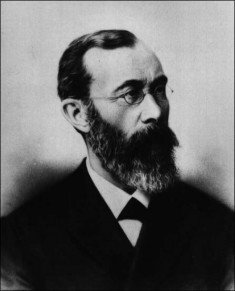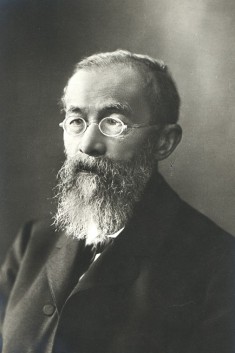| Wilhelm Wundt | |
|---|---|
 |
|
| Psychologist | |
| Born | Aug. 16, 1832 Neckarau near Mannheim, Grand Duchy of Baden, German Confederation |
| Died | Aug. 31, 1920 (at age 88) Großbothen near Leipzig, Germany |
| Nationality | German |
Wilhelm Wundt remains one of the most influential figures in the history of psychology. It is widely accepted he is the first person to actually call himself a psychologist. His influence extends far beyond his ability to create an appropriate moniker for the tasks he performed. Wundt played a critical role in separating the field of psychology from the disciplines of biology and philosophy where it was originally contained and confined.
Wundt’s Early Years
Wilhelm Wundt was born on August 16, 1832, in Neckarau, Baden, which was then part of the German Confederation. He was the son of a Lutheran minister and grew up in a relatively humble environment. The family eventually moved to the small town of Heidelsheim.
As he grew up into a young man, Wundt began a journey into the realm of higher education. Specifically, he studied at three different universities from 1851 to 1856. The learning institutions he studied at included the University of Tübingen, the University of Heidelberg, and the University of Berlin. At the end of his tenure at the University of Heidelberg, he received his degree in medicine. In 1858, Wundt received a position on the staff of the University of Heidelberg and served as an assistant to Hermann von Helmholtz, an esteemed physicist and physiologist.
A Flourishing Career
While working for Helmholtz, Wundt wrote a well-received work entitled Contributions to the Theory of Sense Perception. He also wrote a textbook on the subject of human physiology, although this was really not an area he seemed too interested in. Eventually, be became a professor for medical students and then assumed the position of a Professor of Inductive Philosophy in Zurich in 1874.
Contributions to Psychology
Wundt’s interest in psychology contributed to his desire to put an enormous amount of effort into writing a landmark book that chronicled the history of psychology. The finished work, Principles of Physiological Psychology, was the first ever textbook for the field.
The work took an extremely novel approach to its material. Specifically, the work delved into various experiences of the human mind. Areas examined included consciousness, emotional intelligence, effects of feelings on the human psyche, and more. The work also revealed a new system referred to as internal perception. Internal perception was rooted in attempts to truly understand consciousness through observation.
The First Psychology Laboratory
In 1879, Wundt contributed to a landmark achievement in the field of psychology. At the University of Leipzig, he helped open the very first laboratory dedicated to the study of psychology. Once again, psychology was often considered a subset of biology and philosophy.
With the establishment of the new laboratory, the process of establishing psychology as a separate field and discipline of its own began. At first, the lab was mainly comprised of graduate students who performed research under the guidance of Wundt. Over time, scholars from around the world found their way to the laboratory. The reputation of Wundt had spread and more professionals and academics were traveling to the lab to expand their knowledge base.
 Of course, those who required the help of skilled psychologists would benefit as well since the laboratory contributed to great improvements on the therapeutic nature of the field. Wundt was a strong believer in the notion that psychology should emphasize analyzing the consciousness of a person.
Of course, those who required the help of skilled psychologists would benefit as well since the laboratory contributed to great improvements on the therapeutic nature of the field. Wundt was a strong believer in the notion that psychology should emphasize analyzing the consciousness of a person.
The relationship between the human mind and worldly experiences was a common focus of his systematic approach to psychology. Introspection was a major part of the therapy that Wundt emphasized. Introspection revolved around helping the subject make sense of his/her own feelings and experiences.
To say this approach to psychology was influential would be a tremendous understatement. A significant part of modern psychology is based firmly on the inroads Wilhelm Wundt traveled during the early days of establishing his laboratory. Modern psychotherapy might have looked a lot different, and remained far less effective, had Wundt not been a trailblazer in the field.
Wundt’s Final Years
Wilhelm Wundt lived a long, prosperous, and influential life. He passed away at the age of 88 on August 21, 1920, in Großbothen, Germany. His legacy is one that forever changed the field of psychology by helping to establish it.